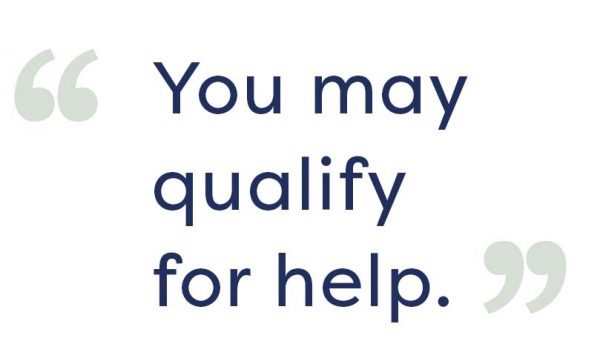Planning your pension on a lower income

Pensions might seem too confusing and, frankly, boring to bother worrying about but investing a bit of time now can pay off later – and we can help.
For most of my life I’ve lumped pensions in with things like doing the washing up, filing paperwork and learning another language – things I’ll get around to later.
After years of dirty dishes, lost letters and embarrassing myself abroad though, I’ve realised that putting things off today will come back to haunt you later, which is why we’re going on a journey of pension discovery today.
In a nutshell, a pension is just a savings pot that you pay a little bit into each month, which you then live off when you stop working.
There are a few benefits of saving into a pension – like getting some tax back on the money you pay in – so if you want to find out more, or aren’t sure if this method is the best one for you get in touch.
If you’re working in a lower income job, can’t work full stop or are already about to retire and don’t have a good plan in place, taking money out of your monthly income might seem a bit mad right now.
The good news is, there are options – and help – out there. Plus, it’s Pensions Awareness Day on Sunday which means it’s the perfect time to bite the bullet and get it sorted.
Why it’s worth pouncing on pensions now
There are three main types of pensions that can support you in your golden years: State Pension, company or workplace pension and personal pension (also known as a private pension).
Going into which is best for you is a topic for another day, but State Pension is the most common, and you’ll qualify if you’ve made a minimum of 10 years’ of National Insurance contributions.
Even on this plan, where you’re not paying in any extra each month, the most you can get from it is probably less than you might think. For example, for 2019-20 it’s £168.60 a week, or £8,767.20 a year.
This isn’t to worry you – it’s just worth looking at some other options too. For example, if you don’t qualify for a state pension and don’t have savings to support you, you might be able to get pension credit.
How to apply
You can access the money in your pension pot from the age of 55, although there might be differences depending on when you were born or what kind of pension you have.
Pension Credit Guarantee tops up your weekly income if it’s below £167.25 (for single people) or £255.25 (for couples).
Other ways to get help
If you’re of state pension age and on a low income you could also get some help with your rent payments and council tax. Ask your local authority or housing association for more information.
If you’re over state pension age and not already getting benefits (like PIP or DLA) and have health problems affecting your care needs you could apply for Attendance Allowance.
If you do get Attendance Allowance it’s worth getting advice to see if you could also get some pension credit, or some extra money in your pension credit if you’re already claiming.
If you live alone but have a carer who doesn’t claim carer’s allowance you might qualify for a disability premium in your pension credit. This premium might move you into a position to get pension credit and housing benefit even if you didn’t before because of other income such as a private pension.
It’s a good idea to get advice on any or all of these options, so please get in touch for free, confidential support.
How we can help
If you’re an Onward customer we can help you check your entitlement to DWP (Department of Work and Pensions) benefits such as Pension Credit and can help you apply for your DWP State Pension.
We can also help you figure out if you’re entitled to Attendance Allowance, if you have health issues.
Please remember, any private pension advice would need to be taken from a financial advisor or the government, which has a free helpline and website, Pension Wise.
Get in touch with our Financial Inclusion Team to get support and find out more


